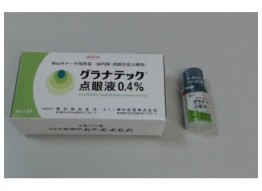Salbutamol tablets 2 mg for asthma, bronchitis and tuberculosis (Albuterol, Ventolin, Proventil)
What are Salbutamol tablets 2mg for asthma, bronchitis, and tuberculosis (Albuterol. Ventolin, Proventil)?
Salbutamol, also known as albuterol, is a selective beta-2 adrenergic receptor agonist. It specifically targets the beta-2 adrenergic receptors in the smooth muscles of the airways. This mechanism of action results in profound bronchodilation, which is essential in the management of various respiratory conditions.
When Salbutamol is administered orally in tablet form, it is rapidly absorbed into the bloodstream, and its effects are seen within a short period. The drug selectively binds to beta-2 adrenergic receptors on the smooth muscles lining the bronchial tubes. This binding triggers a cascade of intracellular events, leading to the activation of an enzyme called adenylate cyclase. The enzyme converts adenosine triphosphate (ATP) to cyclic adenosine monophosphate (cAMP), which serves as a secondary messenger within the cells. Increased cAMP levels lead to the relaxation of the airway smooth muscles, causing bronchodilation. As a result, the bronchial tubes widen, and air can flow more freely into and out of the lungs, improving respiratory function and reducing symptoms like wheezing and shortness of breath.
One of the significant advantages of Salbutamol tablets is their versatility in treating various respiratory diseases. They are commonly used in the management of bronchial asthma, both in children and adults. Salbutamol tablets are particularly beneficial for childhood asthma, as the oral form allows easier administration to young patients who may have difficulty using inhalers effectively.
Moreover, Salbutamol tablets prove highly valuable in the treatment of chronic respiratory conditions such as emphysema and chronic bronchitis. These diseases are characterized by the obstruction of airways and the excessive production of mucus. Salbutamol's bronchodilatory action helps alleviate these symptoms, providing much-needed relief to patients suffering from these conditions.
Furthermore, Salbutamol tablets can play a role in the treatment of respiratory infections, such as pulmonary tuberculosis and silicotuberculosis. By promoting bronchodilation, they aid in improving airway clearance and facilitating the delivery of other medications when necessary.
The safety and tolerability of Salbutamol tablets contribute to their widespread use. Unlike some other bronchodilators, Salbutamol exhibits a relatively selective action on the beta-2 adrenergic receptors, minimizing unwanted side effects on other organs like the heart. This property makes Salbutamol a suitable option for patients with respiratory conditions, even those with smaller body sizes, including children.
Active principles: salbutamol sulfate
Amount: 100 tablets
Maker: Nichi-Iko Pharmaceutical Co. Ltd., Toyama, Japan
Indications:
- bronchial asthma,
- child asthma,
- emphysema,
- chronic and acute bronchitis,
- pulmonary tuberculosis,
- silicotuberculosis.
How to take
Adults: take 2 tablets (4 mg of salbutamol) 3 times a day. In case of severe symptoms, your doctor may prescribe 4 tablets (8 mg) 3 times a day.
Children of 5-15 years old: take 1-2 tablets (2-4 mg) 3 times a day.
Children younger than 5 years old: take 1 to 1.5 tablets (2-3 mg) 3 times a day.
Your doctor may adjust the dose based on your age, disease, or symptoms.
Contraindications: do not use for pregnant or breastfeeding women.
Important information
If an allergic reaction occurs, patient needs to stop using the medicine and consult with their doctor. If patient is taking any other medication or treatment, they should consult with their doctor in advance.




